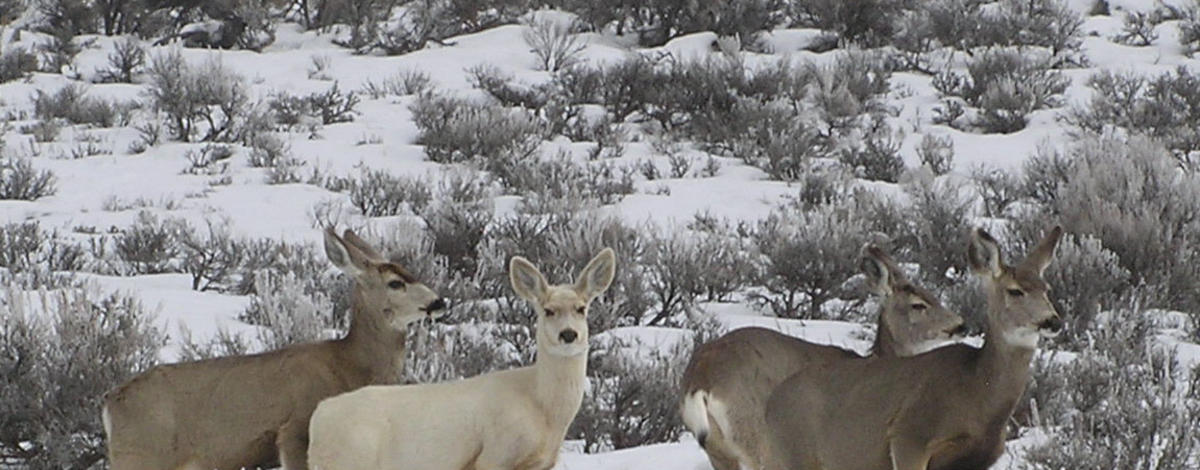Beginning Feb. 3, several Idaho Fish and Game Wildlife Management Areas (WMAs) in southeast and east Idaho will be closed to all public entry. This includes the Portneuf, Georgetown, and Montpelier WMAs in the Southeast Region, and the Tex Creek and Market Lake WMAs in the Upper Snake Region. These WMA closures will help protect wintering big game animals and will remain in effect until further notice.
People accessing WMAs for recreational opportunities are a source of stress for big game animals.
“Deer, elk, and moose moving in deep snow during cold temperatures to escape disturbance causes them to burn through fat reserves rapidly,” says Idaho Fish and Game Regional Habitat Manager, Anna Owsiak. “Providing secure areas without disturbance allows these animals to conserve their energy and improves their chances of surviving the winter.”
While many areas still remain open for recreational use, these WMAs were established in part to permanently protect wildlife habitats, especially portions of critical winter range in the Southeast and Upper Snake Regions. During severe winters like the one we are experiencing this year, thousands of big game animals use these WMAs. Having a winter refuge free of human disturbance can even minimize movements of big game to adjacent private lands and across busy roadways, thereby reducing conflicts with landowners and motorists.
Of course, big game animals aren’t just wintering on WMAs. They can be found anywhere there is refuge from deeper snows and colder temperatures, and often those locations are where people live, work, and play.
Idaho Fish and Game is asking the public to please do its part to help wintering wildlife.
- Give wildlife plenty of space. If your presence or actions cause them to move, you're too close. This is true no matter if you are on quiet cross-country skis or a loud snow mobile.
- Control your four-legged hiking companion. Even if your dog isn’t chasing big game animals, its presence may be enough to cause animals to flee and expend unnecessary energy they would not have otherwise used.
- Whether you live in a rural area or in a town, do not let your dogs run at large where they may come in contact with wildlife. A dog (no matter its size) can be seen as another predator in the eyes of big game animals, and the impacts of free-running dogs on wintering game can be deadly. Remember: It is illegal to allow dogs to chase or harass big game.
- Do not engage in unauthorized feeding of big game. Feeding big game saves very few animals from starving and can often cause more harm than good. Animals can become habituated to handouts, change seasonal migrations, damage property, create traffic hazards when crossing roads to get to feed, and also attract predators. Congregated animals can also more readily transmit diseases, such as brucellosis and chronic wasting disease. Strong adult animals compete for available feed at the expense of the younger, weaker animals. Supplemental feed can actually cause dietary shock and death, such as when deer eat hay.
- Before long, warmer temperatures and melting snows will arrive. However, springtime is still hard on big game. Fat reserves are depleted, making big game vulnerable when pushed or moved. It’s like making the last 50 miles of a road trip on a nearly empty fuel tank. Any detour may use up the last bit of gas you needed to complete the journey. Think about that when you are hiking or antler hunting in areas with big game this spring.
If you have questions about the WMA closures or about wintering wildlife in your area, please contact either the Southeast Region Fish and Game office in Pocatello at 208-232-4703 or the Upper Snake Region in Idaho Falls at 208-525-7290. For maps of WMAs, please visit the Fish and Game website at idfg.idaho.gov.

